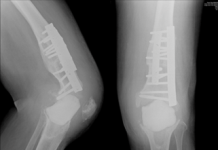GERICS connects stakeholders and researchers in the EU project EUCP (European Climate Prediction system project)
During a four-year European Climate Prediction system project (EUCP) a European research consortium developed new methods and high-resolution climate model data which built the foundation for a future regional climate prediction system (Hewitt and Lowe, 2018). New innovative results have emerged, bridging information from ongoing change to future projections and combining climate information from a global to local scale in a seamless approach. The high-end science helps scientists and climate information providers produce actionable climate information. EUCP bridges the gap between knowledge production and actual usage, exploiting the outcomes.
University of Copenhagen (UCPH) and the Climate Service Center Germany (GERICS) were leading the integration of science with users, ensuring a coordinated involvement of users within EUCP.
Therefore the Muli-user forum (MUF) was established, where EUCP engages with many users and stakeholders in order to ensure a co-designed approach throughout its activities. The Multi-User-Forum (MUF) brings together representatives from public bodies and authorities, civil society organisations, businesses, financial organisations and academic institutions interested in climate information. The MUF members and EU contact points have been invited to the MUF workshops. Within EUCP the majority of users are climate service providers themselves, so they do not directly take the decision. They use the EUCP output to produce results to exploit it to their users and raise awareness.
In following the co-production framework we ensure the user engagement producing a prototype and the uptake of EUCP products into businesses and adaptation strategies. The co-production framework for climate services intended for research and innovation projects using the approach proposed by (World Meteorological Organisation (WMO), 2018) is described in (Bojovic et al., 2021; Norström et al., 2020). The framework engages stakeholders by raising awareness through different communication tools (the engagement realm). It then involves stakeholders in knowledge exchange and co-learning, using various participatory approaches (the involvement realm). Finally, co-production empowers users of climate services, who take part (the empowerment realm). The status of participants gradually changes as they move through the framework, from stakeholders, to potential users, to champion users. The co-production framework sets a suitable infrastructure for prototype development (Figure 1).
The process of prototype development similar to the methods implemented in EUPORIAS (Buontempo et al., 2018) and in China (Hewitt et al., 2020) was applied in EUCP. The cycle of prototyping through user trials begins by undertaking the following five stages in order, although iterations between different stages should take place when appropriate: Stage 1, Explore: Understand user needs. Stage 2, Exploit: Develop a prototype to meet the user needs utilising current capability. Stage 3, Expose: Provide and explain information through user engagement. Stage 4, Examine: Evaluate the service by assessing its usefulness and its shortcomings. Stage 5, Expand: Feedback requirements into underpinning science and prototype improvements.

The engagement realm
EUCP regularly sends out newsletters and maintains a Twitter account, YouTube channel and a website to update the stakeholders and to create awareness on the newest research outcomes of EUCP. The webpage’s highlights are easily understandable summaries of the scientific publications, which also include a section on policy relevance. During the project storyboards[1], a data-catalog[2] and the EUCP atlas[3] were developed. They inform stakeholders in an attractive way about new scientific outcomes. EUCP has also contributed to a number of broadcasting events to engage potential users, including contributing to an event at COP26 and the production of policy briefs.
[1] https://eucp-project.github.io/storyboards/
[2] https://eucp-project.github.io/data-catalogue/
[3] https://eucp-project.github.io/atlas/
The involvement realm
Three MUF workshops and two rounds of one-by-one interviews have been conducted by GERICS, UCPH, Barcelona Supercomputing Center (BSC), Netherlands eScience Center, Centro Euro-Mediterraneo sui Cambiamenti Climatici (CMCC) and Met Office. Roughly 20 external MUF members attended our workshops alongside EUCP scientists.
The first round of one-by-one interviews concentrated on more general questions. In the first workshop, users expressed an urgent need for better guidance on selecting reliable climate information and bias-adjusted climate information and methods. The user’s purpose to use climate data and information is mainly for planning, investment decisions and communication, e.g., flood guidance and flood management. Most of the participants agreed that the information should be simple to handle and the key barrier is the selection of climate datasets and trust in models’ outputs for certain indicators of interest. The 1st Multi-User Forum (MUF-1) and the first round of interviews belong to EUCP prototype development (Stage 1, Explore), they evoked the production of particular scientific outputs and informed the scientific community. For example, during MUF-1 users asked for making CPM (Convection-permitting model) data and example applications available; in the following, the data-catalogue was created, which offers a clear overview about the alternatively available simulations including the new CPM.
Empowerment realm
At the second workshop, EUCP prototypes, so-called ‘storyboards’, were presented and their usability was discussed in detail (Stage 2, Exploit). Having an early prototype (storyboard) has proven to be an effective way of initiating and building engagement between the climate service providers and users.
In Stage 3, Expose of the prototype development the prototype is used in trials with the user to deliver information through appropriate engagement and to build trust. Within EUCP this step was not directly considered, but it was part of both stage 2 (Exploit) and stage 5 (Expand).
The 2nd and 3rd MUF created the environment to discuss in detail the content of the storyboards as well as their usefulness with the authors directly, by discussing how the provided climate information in the storyboards and methods could find their way into businesses and help in adaptation planning (Stage 4, Examine). Co-design is increasingly recognised as a method to match adaptation needs (Rubio‐Martin et al., 2021). The science-stakeholder interaction established in the frame of EUCP, helped to overcome these barriers and can serve as an example for future projects and collaborations.
The purpose of the third workshop was to bridge the gap between the science output from EUCP and the user’s demand. In a dedicated session ‘EUCP scientists at your service’, the questions of the users, still open during the second round of interviews, were addressed by the EUCP scientists. The questions centered around three main topics: uncertainty, model ensemble selection and data access. Important outcomes of the discussions are that each answer depends on the individual user requirements, what kind of information they need, what they want to use it for, what is the information they need to extract. It is important to have a wider look at the whole context of the user’s situation and requirements, and this means that close collaboration is necessary to produce individual suitable climate information.
Finally, (Stage 5., Expand) Feedbacks from the users on developed prototypes were implemented to the git repository as issues[1]. The process of implementing the comments and the storyboards is public and transparent and can be observed and commented at any time even after EUCP has ended. Being transparent and making the science accessible builds trust in the relationship between EUCP scientists, their results and the users. Trust is essential (Brasseur and Gallardo, 2016; Hewitt et al., 2017), and it is established by communication of uncertainty (Otto et al., 2016).
As a result, prototypical Storyboards[2] as well as the EUCP atlas and the data catalogue will remain online as part of EUCP’s legacy.
References:
Bojovic, D., St. Clair, A. L., Christel, I., Terrado, M., Stanzel, P., Gonzalez, P., and Palin, E. J.: Engagement, involvement and empowerment: Three realms of a co-production framework for climate services, Glob. Environ. Chang., 68, 102271, https://doi.org/10.1016/j.gloenvcha.2021.102271, 2021.
Brasseur, G. P. and Gallardo, L.: Climate services: Lessons learned and future prospects, Earth’s Future., 4, 79–89, https://doi.org/10.1002/2015EF000338, 2016.
Buontempo, C., Hanlon, H. M., Bruno Soares, M., Christel, I., Soubeyroux, J. M., Viel, C., Calmanti, S., Bosi, L., Falloon, P., Palin, E. J., Vanvyve, E., Torralba, V., Gonzalez-Reviriego, N., Doblas-Reyes, F., Pope, E. C. D., Newton, P., and Liggins, F.: What have we learnt from EUPORIAS climate service prototypes?, Clim. Serv., 9, 21–32, https://doi.org/10.1016/j.cliser.2017.06.003, 2018.
Hewitt, C., Buontempo, C., Newton, P., Doblas-Reyes, F., Jochumsen, K., and Quadfasel, D.: Climate Observations, Climate Modeling, and Climate Services, Bull. Am. Meteorol. Soc., 98, 1503–1506, https://doi.org/10.1175/BAMS-D-17-0012.1, 2017.
Hewitt, C. D. and Lowe, J. A.: Toward a European climate prediction system, Bull. Am. Meteorol. Soc., 99, 1997–2001, https://doi.org/10.1175/BAMS-D-18-0022.1, 2018
Hewitt, C. D., Golding, N., Zhang, P., Dunbar, T., Bett, P. E., Camp, J., Mitchell, T. D., and Pope, E.: The Process and Benefits of Developing Prototype Climate Services—Examples in China, J. Meteorol. Res., 34, 893–903, https://doi.org/10.1007/s13351-020-0042-6, 2020.
Norström, A. V., Cvitanovic, C., Löf, M. F., West, S., Wyborn, C., Balvanera, P., Bednarek, A. T., Bennett, E. M., Biggs, R., de Bremond, A., Campbell, B. M., Canadell, J. G., Carpenter, S. R., Folke, C., Fulton, E. A., Gaffney, O., Gelcich, S., Jouffray, J. B., Leach, M., Le Tissier, M., Martín-López, B., Louder, E., Loutre, M. F., Meadow, A. M., Nagendra, H., Payne, D., Peterson, G. D., Reyers, B., Scholes, R., Speranza, C. I., Spierenburg, M., Stafford-Smith, M., Tengö, M., van der Hel, S., van Putten, I., and Österblom, H.: Principles for knowledge co-production in sustainability research, Nat. Sustain., 3, 182–190, https://doi.org/10.1038/s41893-019-0448-2, 2020.
Otto, J., Brown, C., Buontempo, C., Doblas-Reyes, F., Jacob, D., Juckes, M., Keup-Thiel, E., Kurnik, B., Schulz, J., Taylor, A., Verhoelst, T., and Walton, P.: Uncertainty: Lessons learned for climate services, Bull. Am. Meteorol. Soc., 97, ES265–ES269, https://doi.org/10.1175/BAMS-D-16-0173.1, 2016.
Rubio‐Martin, A., Mañez Costa, M., Pulido‐Velazquez, M., García‐Prats, A., Celliers, L., Llario, F., and Macian, J.: Structuring climate service co‐creation using a business model approach, Earth’s Futur., https://doi.org/10.1029/2021ef002181, 2021.
World Meteorological Organisation (WMO): Guidance on Good Practices for Climate Services User Engagement, Expert Team on User Interface for Climate Services, 35 pp., 2018.
EUCP:
EUCP, European Climate Prediction system, funded by the European Union under Horizon 2020. Grant Agreement 776613

The EUCP consortium consists of 16 partners from 10 European countries and is lead by the Met Office. All of the partners are nationally and internationally renowned in their fields, representing a well-complemented mix of National Meteorological Services, Additional scientific institutes, Climate Service Centres engaging closely with stakeholders (Met Office, BSC, DMI, Hereon (former HZG), CMCC, KNMI, SMHI).

The Climate Service Center Germany (GERICS) was initiated by the German Federal Government in 2009 as a fundamental part of the German high‐tech strategy for climate protection. Since June 2014, GERICS has been an independent scientific organizational entity of the Helmholtz‐Zentrum Hereon.
The interdisciplinary team at GERICS develops scientifically based prototype products and services to support decision-makers in politics, business and public administration in adapting to climate change.
GERICS is located in the historic “Chilehaus” in Hamburg.
The Director of GERICS is meteorologist and climate scientist Prof. Dr. Daniela Jacob.
Authors:
Katharina Bülow
Claas Teichmann








